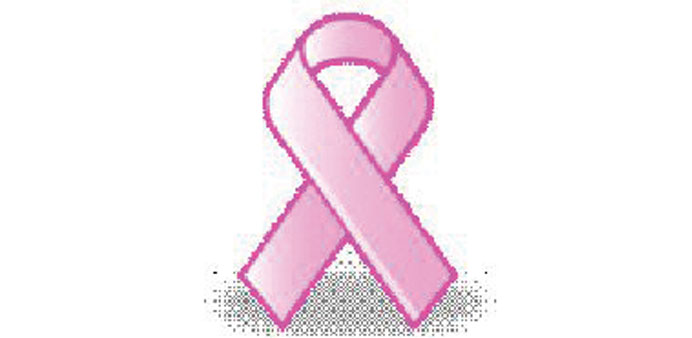Less than one-third of Arab women living in Qatar participate in breast cancer screening activities though a majority are aware of the disease, according to a study.
Conducted by the Hamad Medical Corporation, University of Calgary - Qatar, and Primary Health Care, the study covered 1,063 participants.
Though 90.7% of the respondents were aware of breast cancer, only 7.6% were assessed with having basic knowledge of breast cancer screening (BCS).
The survey showed 28.9% were aware of breast self-examination (BSE), 41.8% were aware of clinical breast exams (CBE), and 26.9% of mammograms.
Of the women interviewed, 13.8% performed BSE monthly, 31.3% had a CBE once a year or once every two years, and 26.9% of women 40 years of age or older had a mammogram once a year or once every two years.
Participation rates in breast cancer screening activities were significantly related to awareness and knowledge, education levels, and receiving information about breast cancer, self-examination or mammography from any of a variety of sources, particularly physicians.
It has been recommended that public health campaigns encouraging more proactive roles for healthcare professionals regarding awareness and knowledge of breast cancer, screening, and the benefits of early detection, will help increase screening rates and reduce mortality rates among Arab women living in Qatar.
Worldwide, breast cancer is the most commonly diagnosed and one of the leading causes of cancer deaths. In the Middle East region, the incidence of breast cancer has substantially increased in the last 24 years. Women are not only being diagnosed with breast cancer in the later stages of the disease but also a higher proportion of younger women in their thirties and forties are clinically presenting with breast cancer.
According to the World Health Organisation (WHO), Qatar experienced a 12.9/100,000 breast cancer mortality rate in 2008. This is higher than Saudi Arabia (10.4/100,000) and the United Arab Emirates (10.9/100,000), which also have lower incidence rates of breast cancer compared to the rest of the Middle East.
In 2007, 20% of cancer cases receiving treatment in Al Amal Hospital in Doha were for breast cancer. Data from Qatar’s 2006 National Cancer Disease Registry, and the WHO (2008) revealed that breast cancer is the leading cancer diagnosis, far greater than other most common cancers for Qatari women.
Previously in Qatar, the BCS recommendation was for a monthly BSE with a yearly CBE for women aged above 35 years and a mammogram every two years for women aged 40-69 years, unless otherwise advised by physicians.
The guidelines now recommend a monthly BSE starting at age 20, a yearly CBE for women aged 35 and above, and an annual mammogram for women aged 40–69 years, unless otherwise advised by physicians.
Although data related to breast cancer research in the Middle East is scarce, previous studies in the region have found low BCS participation rates among women.
In a more recent study of 1,200 Qatari women between the ages of 30-55 years, it was discovered that despite an adequate knowledge of breast cancer, participation rates in breast cancer screening activities were low; BSE 24.9%, CBE 23.3% and mammography 22.5%.
These rates are very low compared to women’s breast cancer screening rates in countries such as Canada, Denmark, Finland, Sweden and the Netherlands, where 70% to 85% women aged 50-69 years have had a mammogram in the previous three years. National screening programmes vary; therefore, benchmarking remains a challenge.
However, low breast cancer screening participation rates in Qatar should raise concern among healthcare providers and policymakers alike, the study, published by Avicenna and hosted by Qscience.com has recommended.
The study was conducted by Tam Truong Donnelly (Faculty of Medicine, University of Calgary - Qatar), Al-Hareth al-Khater, Salha Bujassoum al-Bader, Nabila al-Meer, Rajvir Singh (Hamad Medical Corporation), Mohamed Ghaith al-Kuwari, Mariam Malik (Primary Health Care), and Sofia Chaudhry and Roqaia Ahmad Dorri (University of Calgary - Qatar).

